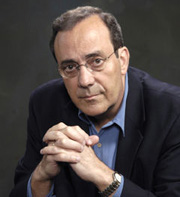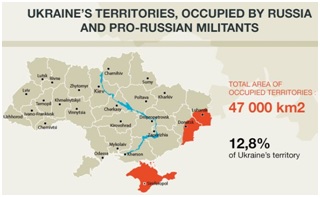El conflicto Rusia-Ucrania se ensombrece y soplan vientos de guerra. Millones retienen la respiración ante la posibilidad de que el enfrentamiento se pueda extender al resto del mundo, al unirse otras naciones al conflicto.
Estados Unidos, a través del presidente Joe Biden, advirtió a Vladimir Putin que una invasión a Ucrania tendrá “costos rápidos y severos” para Rusia.
![]() LA GUERRA FRIA
LA GUERRA FRIA
Las distensiones entre Estados Unidos y la Unión Soviética hace tiempo que habían comenzado, al llegar Ronald Reagan a Casa Blanca. Fruto de esas negociaciones fue la firma del Tratado START en julio de 1991 por parte de Mijail Gorbachov, al que le quedaban pocos meses en el Kremlin y un George Bush padre, que llegó a la presidencia después de Reagan.
Esta cumbre fue denominada por muchos analistas como la primera de la "postguerra fría". Gorbachov no sólo planteó el desarme nuclear sino que, empeñado en acelerar el proceso de distensión, anunció en diciembre de 1988 ante las Naciones Unidas una reducción unilateral de 500.000 hombres en las fuerzas armadas soviéticas y la retirada de tropas y vehículos combate de la Europa Oriental.
Pocos meses después, en marzo de 1989 se iniciaron en Viena conversaciones para la reducción de fuerzas convencionales en Europa que culminarían con un acuerdo firmado en Ottawa, Canadá, en febrero de 1990 por los ministros de relaciones exteriores de los países miembros de la OTAN y el Pacto de Varsovia.
REPLIEGUE
- Hits: 3531

 Lo primero es lo primero. Acudan al Washington Post y busquen una gran investigación sobre la esclavitud de los negros en Estados Unidos. Gracias a Internet lo pueden hacer y es gratis. Nada menos que más de 1700 congresistas, a lo largo de los años y las décadas, tuvieron esclavos, es decir: poseyeron personas. El último de esos congresistas murió en 1914, aunque la Enmienda XIII, que puso en libertad a los esclavos, es de 1865. Entre los ‘propietarios de gentes’ estaban, a mediados del siglo XIX, Andrew Johnson, luego vicepresidente de Abraham Lincoln, Sam Houston, un héroe en Texas y, naturalmente, Jefferson Davis, presidente de la Confederación de Estados del sur.
Lo primero es lo primero. Acudan al Washington Post y busquen una gran investigación sobre la esclavitud de los negros en Estados Unidos. Gracias a Internet lo pueden hacer y es gratis. Nada menos que más de 1700 congresistas, a lo largo de los años y las décadas, tuvieron esclavos, es decir: poseyeron personas. El último de esos congresistas murió en 1914, aunque la Enmienda XIII, que puso en libertad a los esclavos, es de 1865. Entre los ‘propietarios de gentes’ estaban, a mediados del siglo XIX, Andrew Johnson, luego vicepresidente de Abraham Lincoln, Sam Houston, un héroe en Texas y, naturalmente, Jefferson Davis, presidente de la Confederación de Estados del sur. What does the requirement of the Communist Party to recognize "LDNR" mean? Poroshenko's return to Ukraine and the anniversary of Navalny's return to Russia. Ryabkov on the Valdai about "another deception" of the West. The long-standing debate over who is stronger - democracy or dictatorship - is now about Ukraine's fate.
What does the requirement of the Communist Party to recognize "LDNR" mean? Poroshenko's return to Ukraine and the anniversary of Navalny's return to Russia. Ryabkov on the Valdai about "another deception" of the West. The long-standing debate over who is stronger - democracy or dictatorship - is now about Ukraine's fate.
 Nadie duda de que Mark Zuckerberg hace grandes esfuerzos para reinventar su monopolio. Asediado desde hace años por especular con los datos de los usuarios de Facebook, permitir la circulación de teorías conspirativas, incentivar el genocidio, transmitir masacres en vivo y manipular a los adolescentes para que no puedan dejar la pantalla, aunque los afecte, el empresario intenta cambiar el eje de la polémica, sin tocar el modelo de negocios que inició hace 18 años y que lo transformó en uno de los hombres más ricos del mundo.
Nadie duda de que Mark Zuckerberg hace grandes esfuerzos para reinventar su monopolio. Asediado desde hace años por especular con los datos de los usuarios de Facebook, permitir la circulación de teorías conspirativas, incentivar el genocidio, transmitir masacres en vivo y manipular a los adolescentes para que no puedan dejar la pantalla, aunque los afecte, el empresario intenta cambiar el eje de la polémica, sin tocar el modelo de negocios que inició hace 18 años y que lo transformó en uno de los hombres más ricos del mundo.